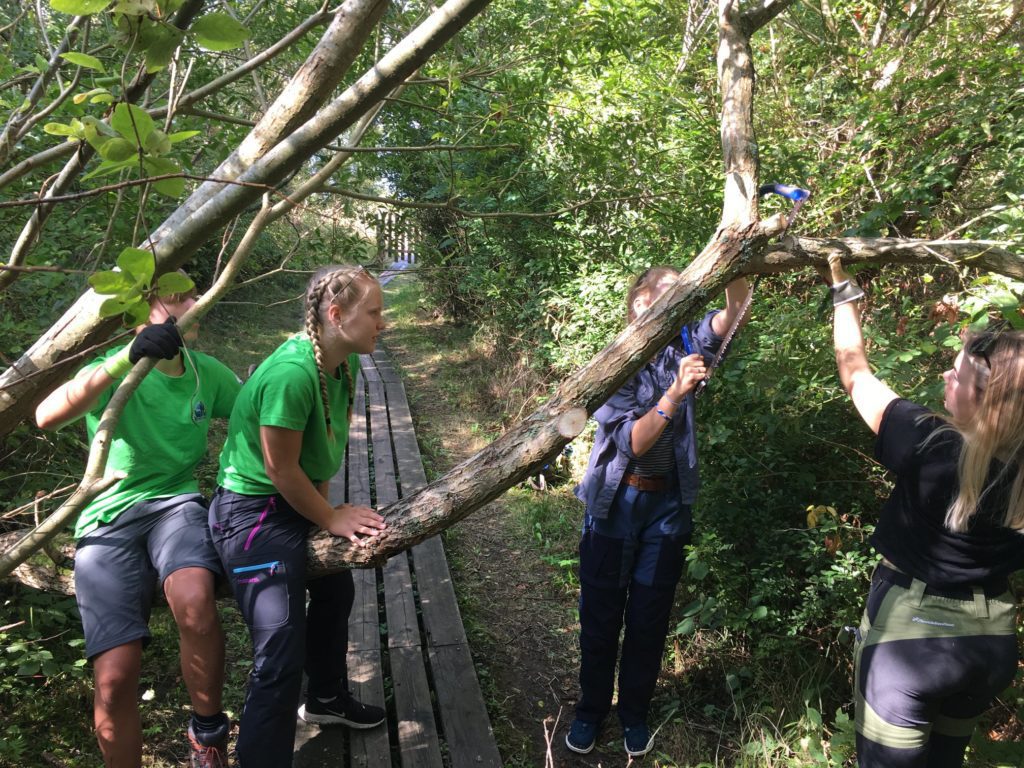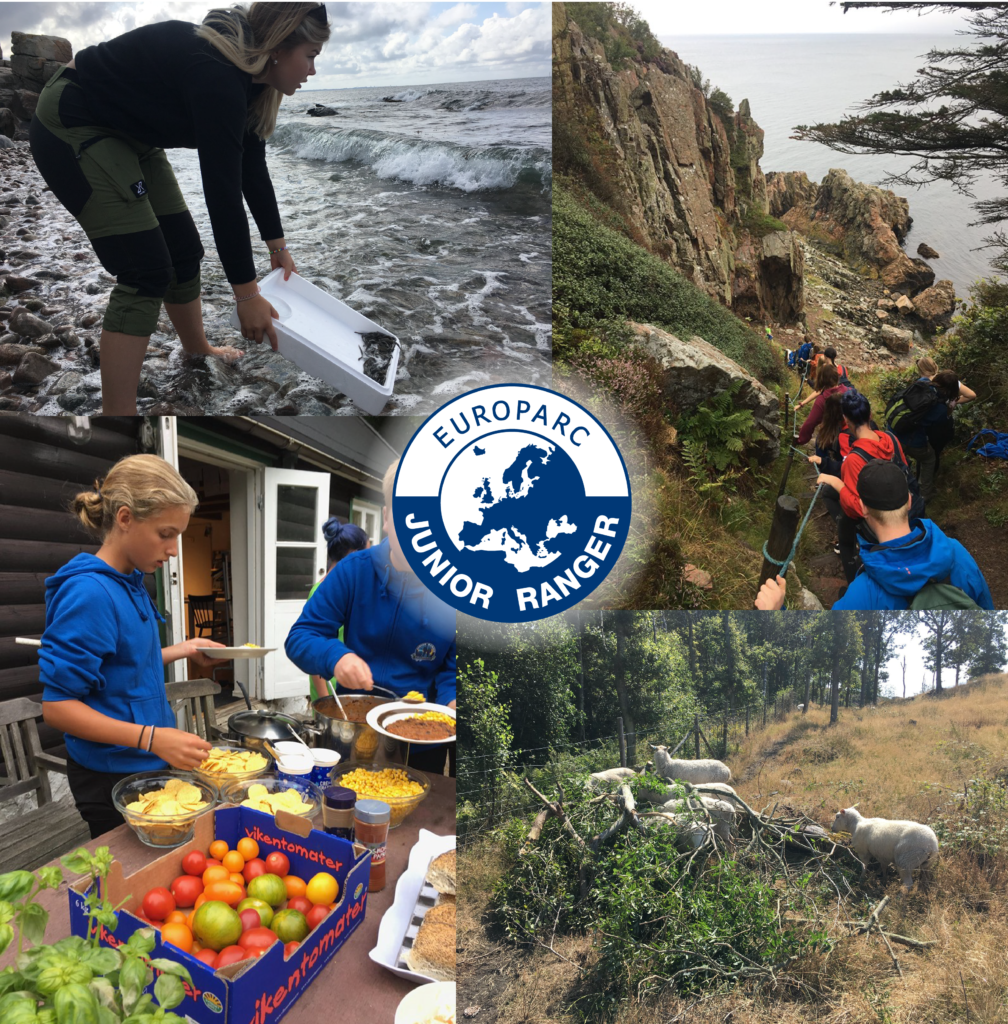Junior Ranger Camp on Kullaberg, Sweden.
The 8th of August of 2019, a group of Junior Rangers from Müritz National Park landed on the coast of the wild peninsula of Kullaberg to gather Junior Rangers from Kullaberg Nature Reserve, ready to discover the challenges and environment that Junior Rangers from Sweden deal with.
article issued by the Junior Rangers of the Kullaberg Nature Reserve
From sunrise to sunset and beyond!
After 2019 International Junior Rangers Camp, Kullaberg Nature Reserve and Müritz National Park organised a Camp that included a lot of fun but also a lot of new knowledge since the starting. We actually got to use bat detectors during the first evening. The bat detectors catch up the special audio frequency from the bats, which is very convenient for us since humans are not capable to hear so high frequency.
On the second day, we got to do some Junior Ranger work to improve the infrastructure. We met up with the rangers and got our mission of the day. The Youth + camp was there before us so we pretty much got to finish what they had accomplished. The task included:
- Cut down a tree that was blocking the path
- Finished the stone wall the Youth+ group started
- Cut down another tree that was damaging the fence
The reason for doing this was because the old path was too dangerous for the visitors to walk on.
Presenting each evening what we had learnt during the days really helped us not just to remember and think in different perspectives, but also to develop our communication skills
A small peninsula full of habitats and possibilities
We didn’t want to focus just on the forest life in Kullaberg, since there is more to explore.
One of the days we met the team from the eel-restoration project that told us about the glass eel. They are brought to Kullaberg to grow and then they swim all the way back to the Sargasso where they are born. We Junior Rangers got to help releasing the eels at Ransvik.
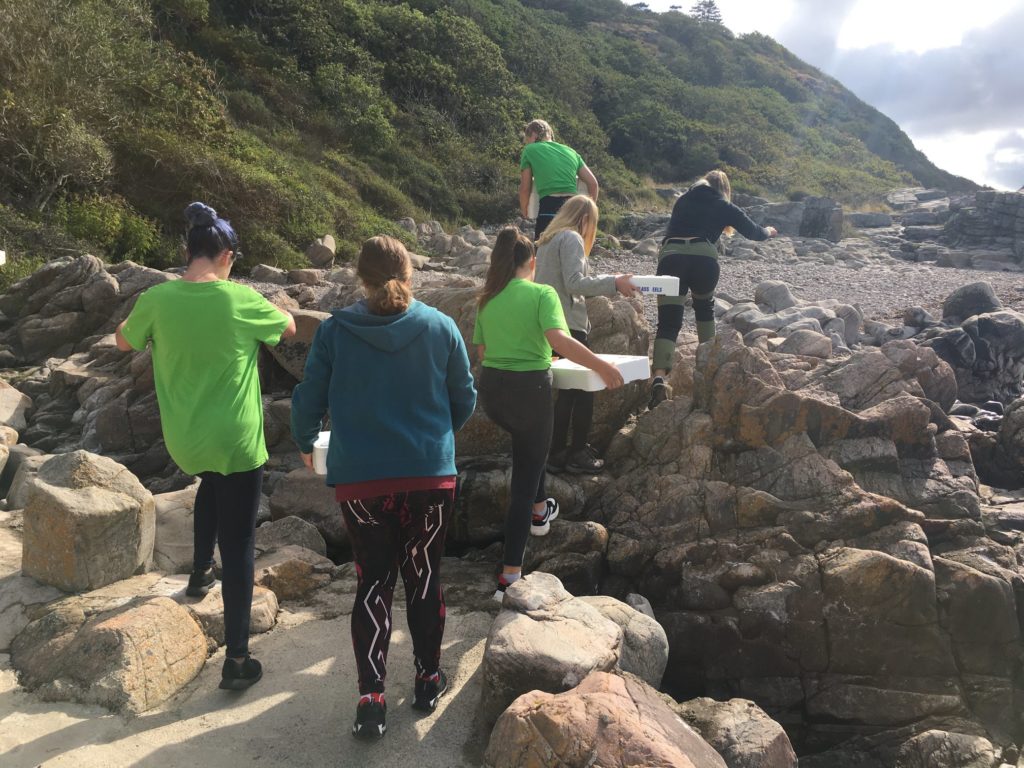
Now we had seen parts from the forest life and the marine life at Kullaberg so we had one more to go. The peninsula has a lot of caves and tall rocks just by the coast. The life here is of course a bit different from the rest of Kullaberg since you can find plants that can survive in the caves even though they don’t get so much sunlight.
A reflection to apply
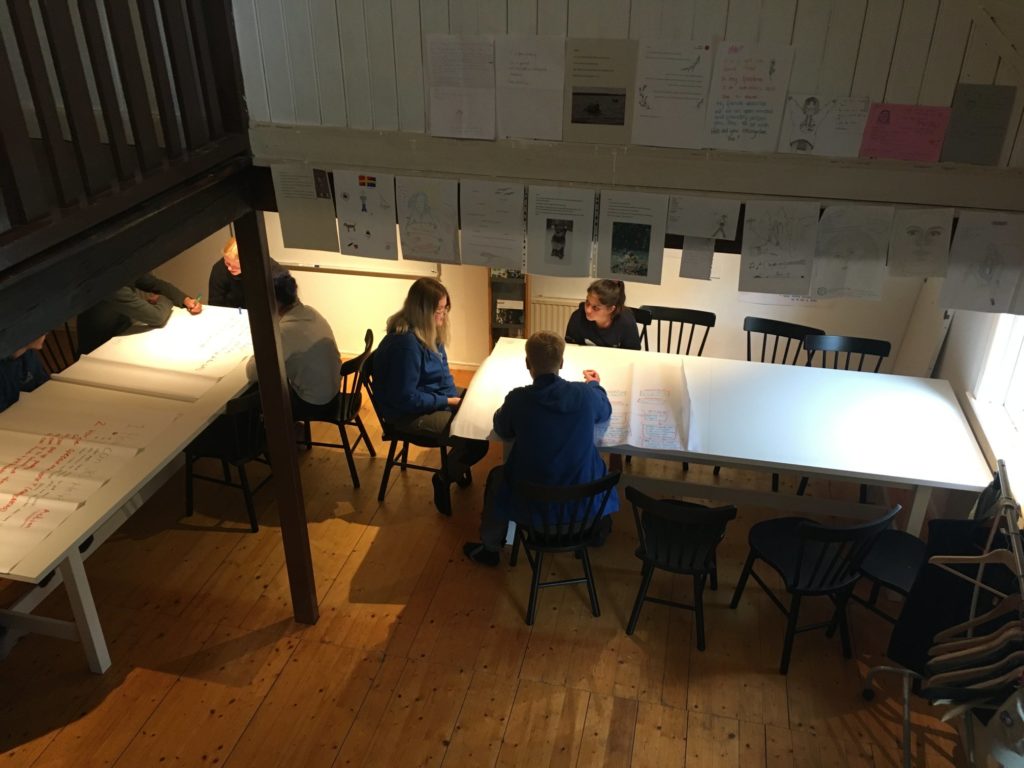
We watched the film called “50 minutes to save the world”, which addresses that the majority of all coral reefs are dying due to us humans, for instance, because of the problem with litter plastic. The animals and plants undersea are affected, the whole underwater life is affected, and when we don’t protect and save this life, the life above sea level will not survive. “I don’t want to give the whole movie away, but I assure you it is worth seeing“.
We can save the climate if we act now
– Is an important message from this camp.
Now when the camp is over I think we all can bring home new knowledge, good conscience and fun memories…
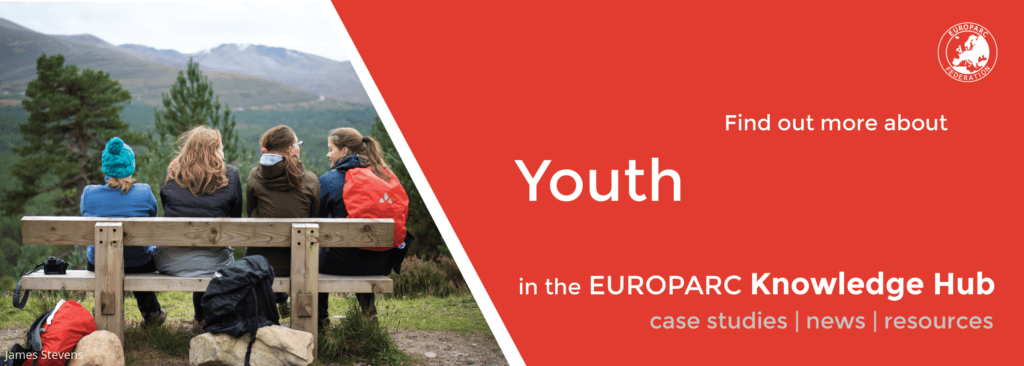
https://www.europarc.org/knowlege-hub/youth/
